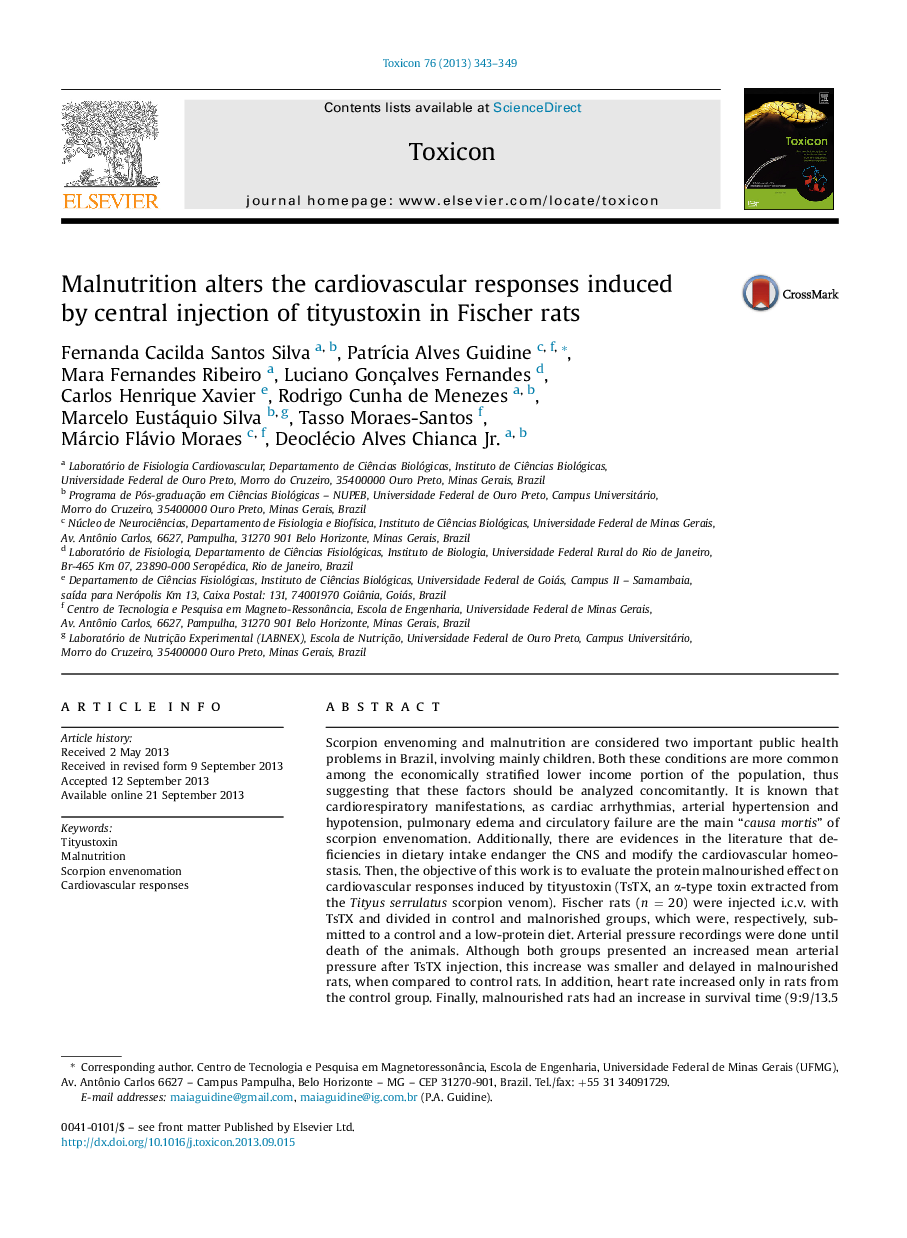| Article ID | Journal | Published Year | Pages | File Type |
|---|---|---|---|---|
| 8396795 | Toxicon | 2013 | 7 Pages |
Abstract
Scorpion envenoming and malnutrition are considered two important public health problems in Brazil, involving mainly children. Both these conditions are more common among the economically stratified lower income portion of the population, thus suggesting that these factors should be analyzed concomitantly. It is known that cardiorespiratory manifestations, as cardiac arrhythmias, arterial hypertension and hypotension, pulmonary edema and circulatory failure are the main “causa mortis” of scorpion envenomation. Additionally, there are evidences in the literature that deficiencies in dietary intake endanger the CNS and modify the cardiovascular homeostasis. Then, the objective of this work is to evaluate the protein malnourished effect on cardiovascular responses induced by tityustoxin (TsTX, an α-type toxin extracted from the Tityus serrulatus scorpion venom). Fischer rats (n = 20) were injected i.c.v. with TsTX and divided in control and malnorished groups, which were, respectively, submitted to a control and a low-protein diet. Arterial pressure recordings were done until death of the animals. Although both groups presented an increased mean arterial pressure after TsTX injection, this increase was smaller and delayed in malnourished rats, when compared to control rats. In addition, heart rate increased only in rats from the control group. Finally, malnourished rats had an increase in survival time (9:9/13.5 vs. 15.5:10.5/18 min; p = 0.0009). In summary, our results suggest that the protein restriction attenuates the cardiovascular manifestations resulting from TsTX action on CNS.
Related Topics
Life Sciences
Biochemistry, Genetics and Molecular Biology
Biochemistry, Genetics and Molecular Biology (General)
Authors
Fernanda Cacilda Santos Silva, PatrÃcia Alves Guidine, Mara Fernandes Ribeiro, Luciano Gonçalves Fernandes, Carlos Henrique Xavier, Rodrigo Cunha de Menezes, Marcelo Eustáquio Silva, Tasso Moraes-Santos, Márcio Flávio Moraes, Deoclécio Alves Jr.,
